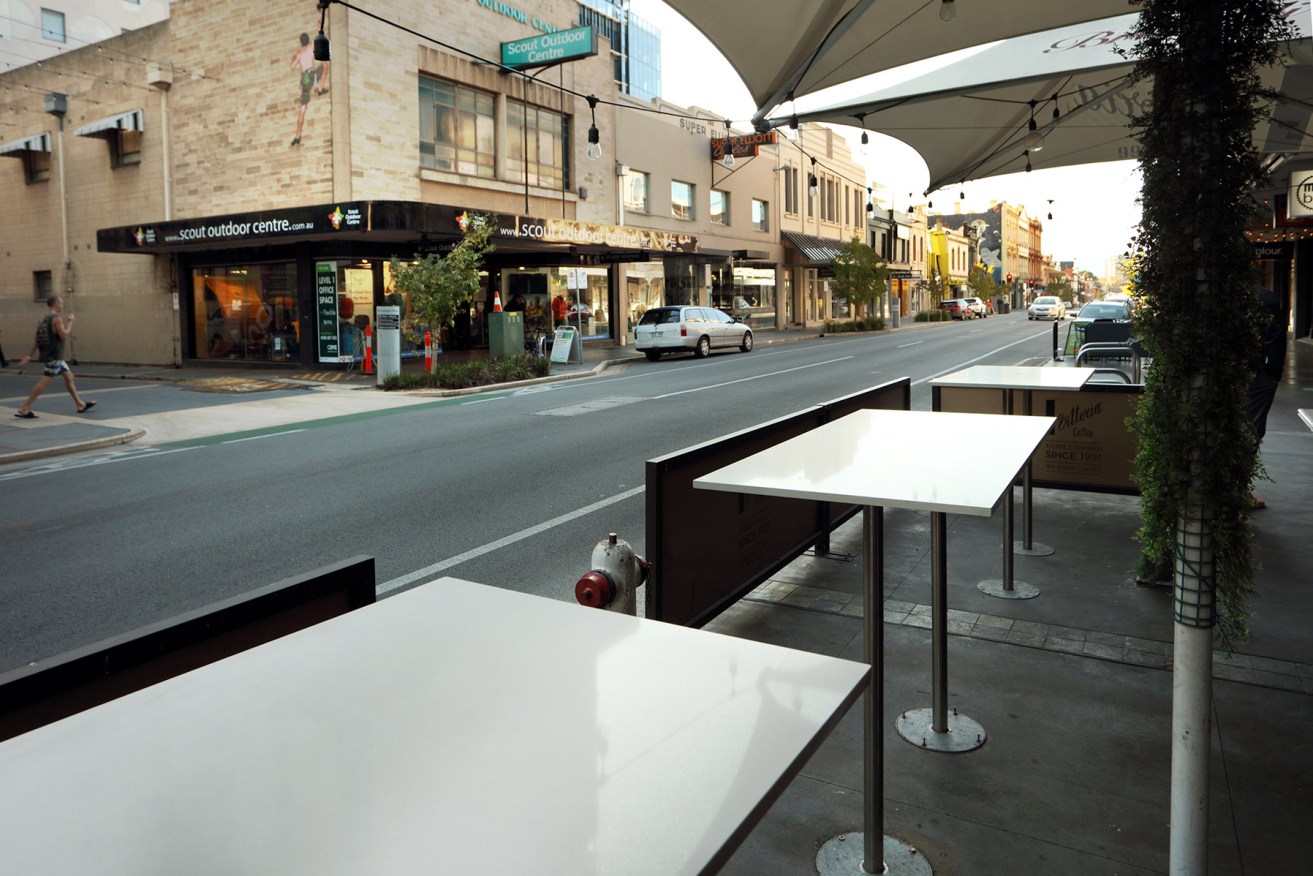Frydenberg’s confirmation came after the Australian Bureau of Statistics reported the economy shrank by 0.3 per cent in the March quarter, on the back of the bushfires, drought and coronavirus pandemic.
Asked whether the country was now in recession, he said: “Well, the answer to that is ‘yes’. And that is on the basis of the advice that I have from the Treasury department about where the June quarter is expected to be.”
His comments came as figures showed Australia’s economy shrunk by 0.3 per cent as bushfires ravaged the nation followed by the coronavirus pandemic, locking in a recession.
The March quarter national accounts, released on Wednesday, show growth for the year slowed to 1.4 per cent.
That’s the slowest annual growth rate since September 2008, when Australia was in the midst of the global financial crisis.
Australian Bureau of Statistics chief economist Bruce Hockman said Wednesday’s figures capture just the beginning of the expected economic blow from the measures to contain the coronavirus.
The size of the hit was cushioned by increased government spending, which added 0.3 points to GDP, and strong exports, adding 0.5 points.
But household spending dropped by 1.1 per cent over the quarter.
This was the first drop since December 2008 and the annual result of a 0.2 per cent decline was the weakest since March 2009.
There was an unprecedented fall in spending on services – as social distancing rules and travel bans were introduced – and investment in housing continued to drop.
Summer’s bushfires led to a strong drop in tourism-related activity, including travel, accommodation and food services in regional areas while $1.4 billion was paid out in insurance claims.
But the natural disaster also drove increase government spending, with defence spending growing 1.1 per cent in the quarter as troops were deployed to help, and total state and local government expenditure jumping by 1.9 per cent.
The GDP figure is in the range anticipated by economists.
The June quarter numbers, which will be revealed in September and feed into the October 6 federal budget, are widely expected to be much worse – in the realm of a nine per cent contraction.
“Whichever way you look at it, Australia will be in recession,” Commonwealth Bank senior economist Belinda Allen told AAP.
NAB head of markets research Ivan Colhoun said the size of the shock in April and May brought on an “instant recession”.
“You couldn’t travel, you couldn’t go to work, everything just stopped,” he told AAP.
The Reserve Bank said the depth of the economic slump could be less than predicted.
But governor Philip Lowe has reiterated the highly uncertain outlook and again called for the government to keep its fiscal support in the economy.
Car sales crash
Sales of new cars and trucks in Australia crashed by 35 per cent last month, the biggest drop in demand for the month of May over the past 30 years.
The Federal Chamber of Automotive Industries says 59,894 vehicles were, a 35.3 per cent fall on the 92,561 vehicles retailed in May last year.
The drop came on top of the 48.5 per cent fall in sales in April, as the impacts of the coronavirus pandemic across the business sector intensified.
On a year-to-date basis, the market was down 104,468 units, or 23.9 per cent.
FCAI chief executive Tony Weber said the automotive sector had been under pressure for some time with May’s decline the 26th consecutive month of falling demand.
“The causative factors are well documented – droughts, floods, bushfires, tight lending conditions, unfavourable exchange rates, and political uncertainty,” Mr Weber said.
“Now, we add to that the devastating effect of the COVID-19 pandemic over the past three months.
“While COVID-19 is primarily a health crisis, it has brought about an economic crisis as well.
“These are difficult times for the global and domestic economy, and this, of course, has repercussions for the local sales sector, including the automotive industry.”
Toyota was the market-leading brand in May, with 14,466 sales, ahead of Mazda on 5661 and Hyundai on 4109.
Toyota also enjoyed a clear lead over the first five months of 2020 with sales of 74,862 compared to 29,427 for Mazda.
Among the states, the market held up best in Western Australia where sales fell by just 26.4 per cent in May, while Tasmania was hit the hardest with demand down by almost 52 per cent.
Weber said while the fall in consumer confidence and household spending had severely curtailed retail activity, the government’s stimulus measures and the gradual easing of pandemic-enforced restrictions had brought some optimism.
“Anecdotally, we may be beginning to see some green shoots in the marketplace,” he said.
“With people venturing out a little more, dealers have advised of a slight uptick in floor traffic through dealerships.
“Additionally, we are hearing from some brands that website traffic is on the rise – a sure sign of increased purchasing interest.”
-with AAP
Want to comment?
Send us an email, making it clear which story you’re commenting on and including your full name (required for publication) and phone number (only for verification purposes). Please put “Reader views” in the subject.
We’ll publish the best comments in a regular “Reader Views” post. Your comments can be brief, or we can accept up to 350 words, or thereabouts.





